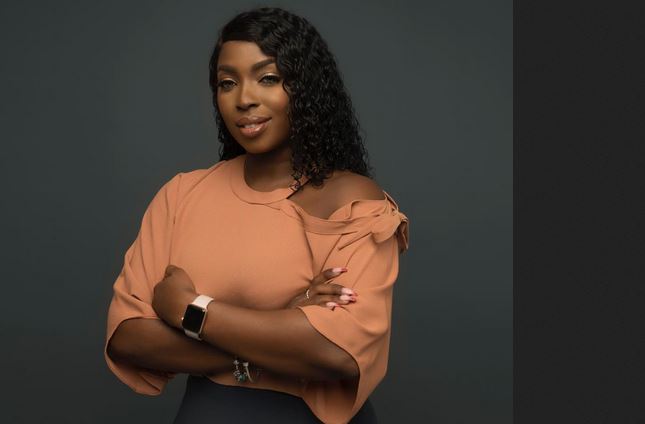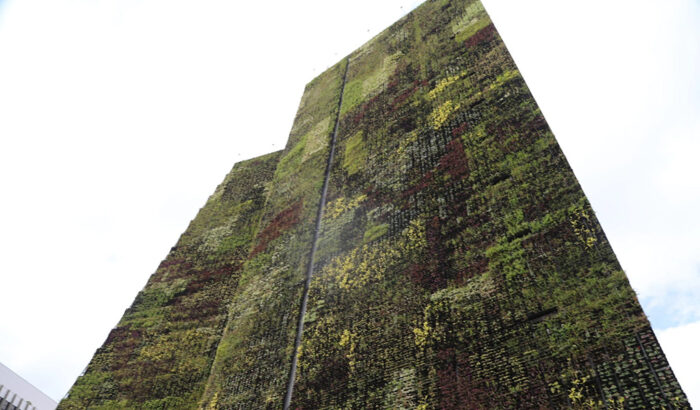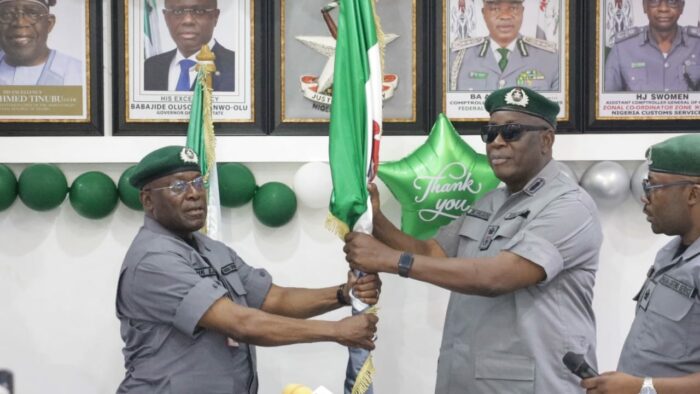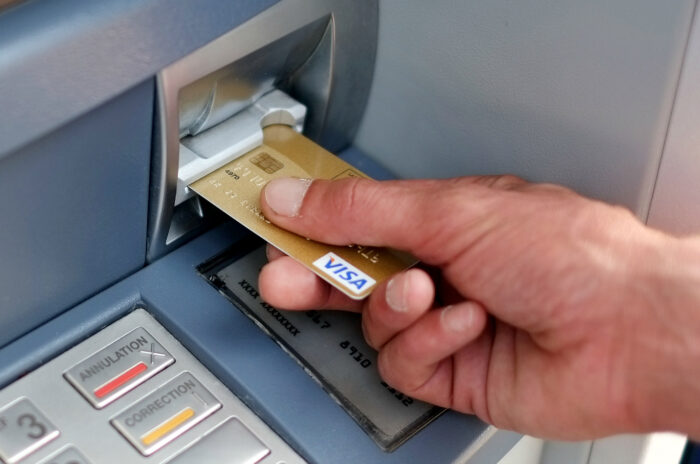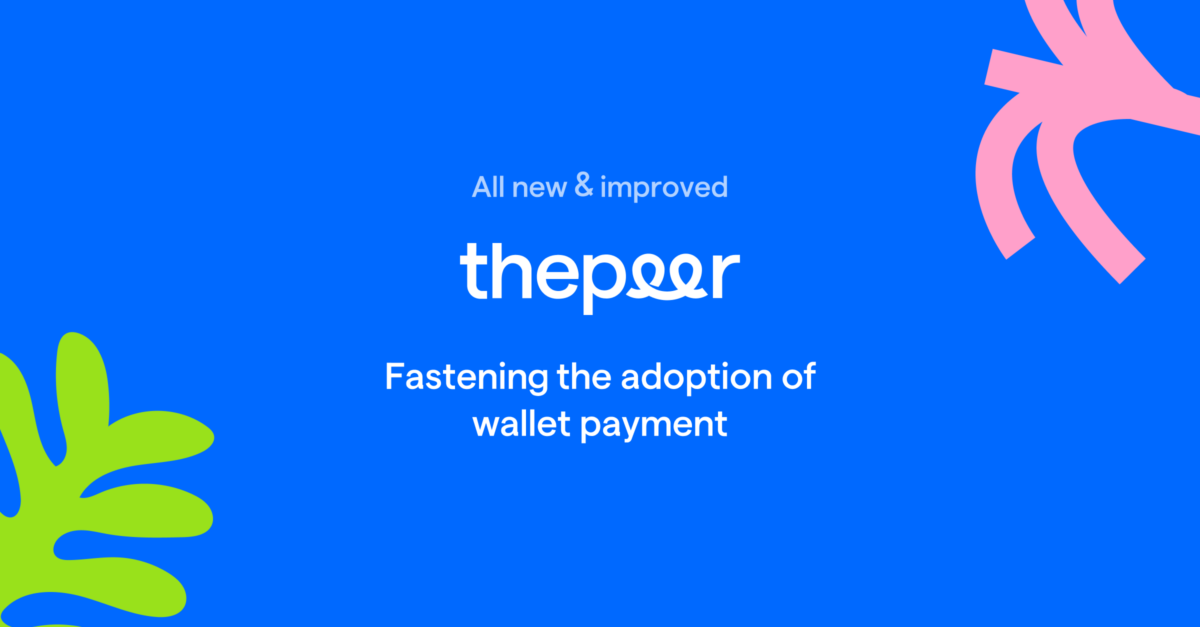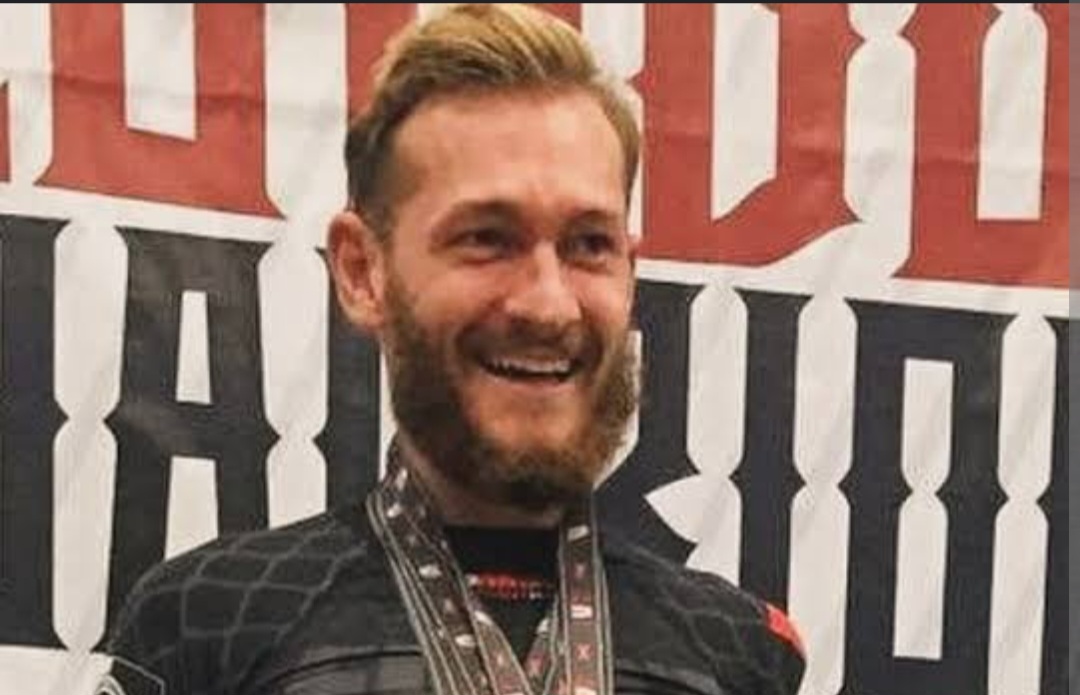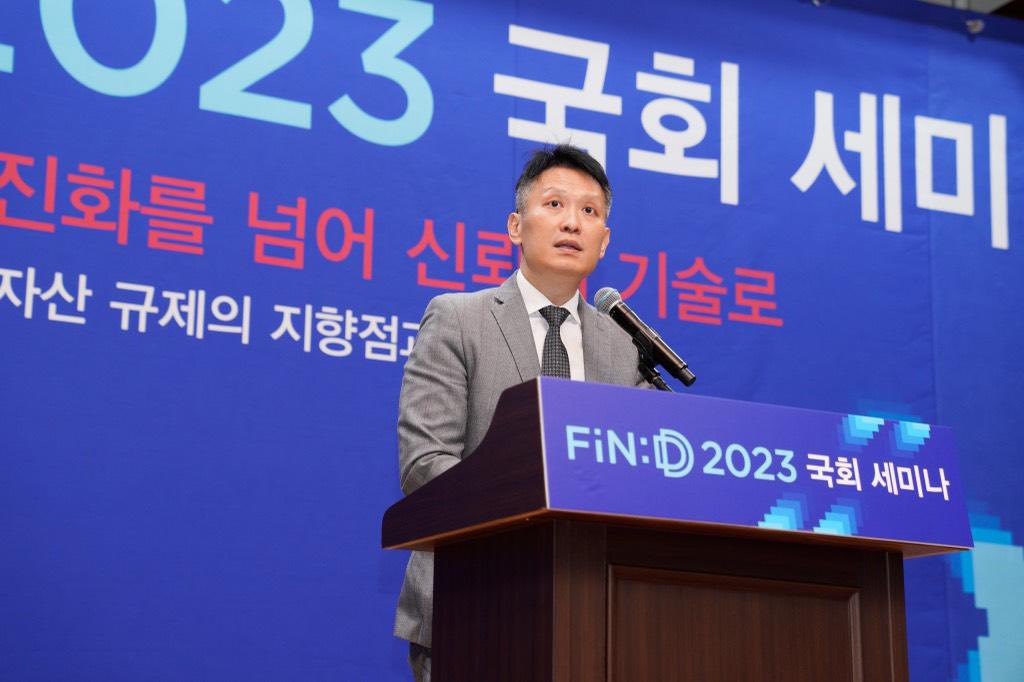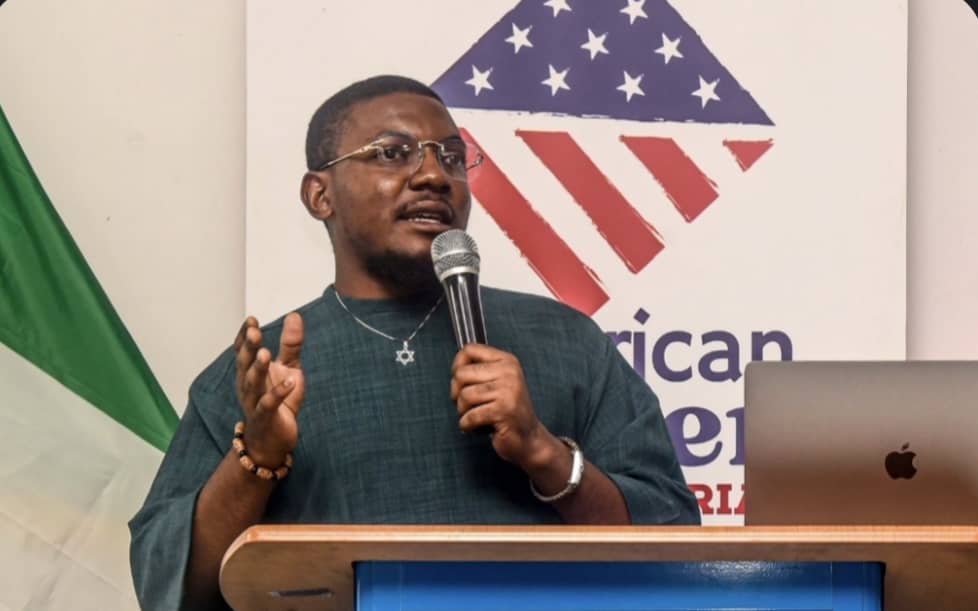Born in Lagos but bred in the United Kingdom, Aderonke Rene Ahmed’s first visit to a Nigerian public hospital in 2016 was by a strange happenstance, but it is the reason several hundred sick members of the public are still alive today. It was a visit that exposed her to cruelty of out-of-pocket health financing for the poor, a challenge she hasn’t backtracked from ever since.
Aderonke Rene Ahmed will teach you kindness.
Once a little girl with uncommon empathy, she has now grown into a woman leading Visit A Hospital Today, one of Nigeria’s most important charity organisations.
“I’ve just always been kind,” Rene told FIJ in an interview in October.
“I always knew that I was a kind person, I have always been empathic towards people, but there’s a reason I started Visit A Hospital Today, and there was a reason I chose health.”
A CHILDHOOD BETWEEN FOSTER PARENTS, TWO CONTINENTS
Rene was born in Lagos, Nigeria. She spent her earliest years abroad, in the United Kingdom, and then she returned to Nigeria as a child before going back to the UK for her secondary school education.
She told FIJ she spent some of her earliest years with her white foster parents. This was between her time as a toddler and her primary school education.
“When I was born in Nigeria, I was taken to the UK,” she said.
“I was there until I was about five years old, and then I was brought back to Nigeria again. So, being in the UK meant that I was living with foster parents who were white, and my foster parents taught me a lot of manners. So, when I came back to Nigeria, my mum said that every time she asked me to do something I would insist she say, ‘please?’ That if she didn’t say ‘please’ I wouldn’t do it. So, she started calling me a lawyer.
“I was here till I was about 11 years old. I am the last born of six children and I was by myself. Then, at some point, my mum decided that I needed to go meet my siblings in the UK. So I went to the UK and stayed there till around 2014. My mum is a trader in Lagos Island; she was one of the first people to start selling fabrics in Lagos Island.
“My dad is a businessman. My parents were divorced, so I never had that sort of nuclear family thing. It was very much me living with a single mother but they were very close. My dad helped a lot.”
KIND IN A WEIRD WAY
Rene said that she was the kind of kid who would see someone crying on the streets and just walk up to that stranger to give them a hug. It was just a way of life for her and, whenever she tried not to be that person, she wasn’t happy without having empathy for others.
So, she just decided at some point that she was going to be herself, even if it seemed weird.
“I’ve just always been a very kind-hearted and generous person. So are my family members, but not like me. Mine was just a bit extreme and I think everybody just looked at me like I was a weirdo,” she said.
“I’ve just always been that child. Even in Nigeria, growing up, I knew that my parents were not – I wouldn’t say rich – wealthy. But, at the time, my mum had different cars and my dad had different cars, and we had a big house, but I noticed the difference between me and other people. So, if I saw a child crying when I was going to school, I saw a child looking sad, or maybe walking to school with tattered clothes and dirty shoes, I just felt really sad.
“My mum told me that I would always ask if we could get that child a pair of shoes or food. I think it is just something I’ve always done. I think the only time I feel something is when I see the impact immediately, maybe someone needs something at that moment and I am just happy to have stepped in. Maybe I am just driving past and I see someone and I give them something I don’t feel or even remember, I guess because that’s just who I am. If it is an immediate need and I am able to fulfil that need, it makes me feel grateful that I was at the right place and at the right time.”
WHEN RACISTS MADE RENE FEEL KINDNESS ON A DIFFERENT LEVEL
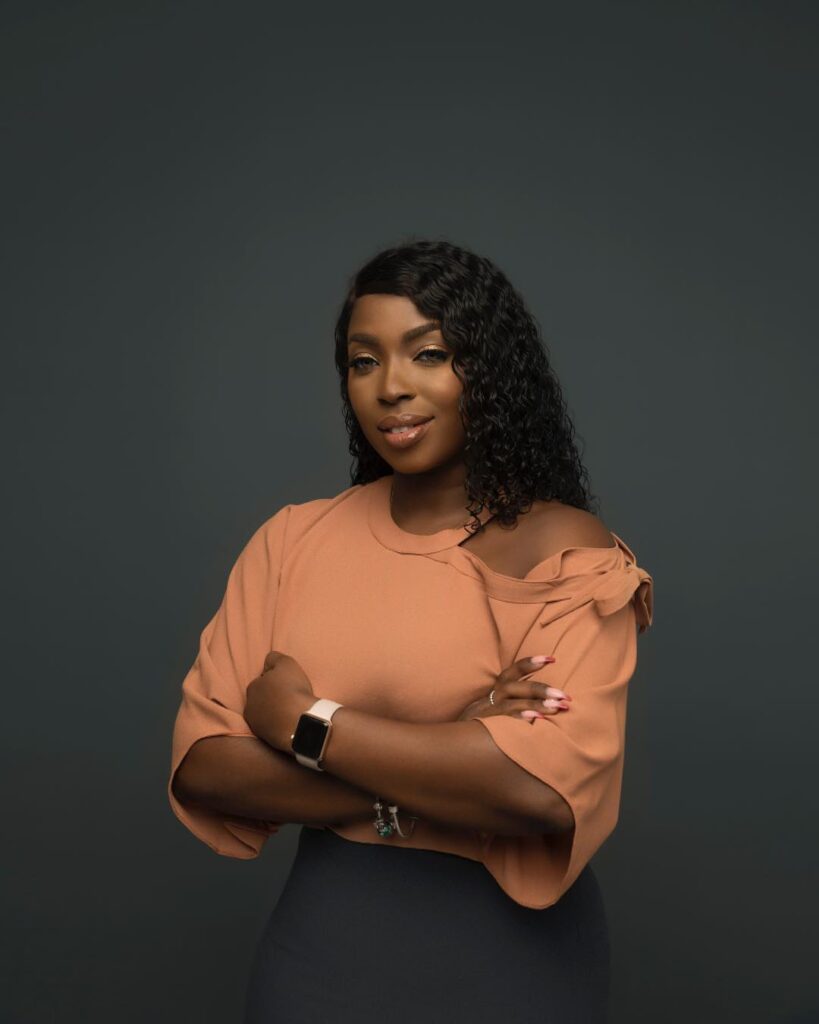
During Rene’s second stretch of UK residency, she attended secondary school and university where she saw a different dynamic of kindness and empathy.
While she was not treated unkindly as a child living in Nigeria, she had seen adults acting unkindly to workers. She had a completely different experience in her UK secondary school.
“I was shielded and I didn’t really have friends at school [in Nigeria] who were unkind,” she said.
“The only time I saw people being unkind, they were adults, and as a child, I couldn’t really gauge whether it was unkind or not. I just knew that it didn’t feel nice and it didn’t look nice; maybe seeing someone talking to the housegirl or their driver in a very derogatory way.
“I did JSS1 in Nigeria before I moved to the UK. So, my first school was a predominantly Asian school. Most of them were Indians and Pakistanis. I think there were only two blacks there and it was me and another girl who was Somalian. We just gravitated towards each other because we were the only black people.
“One thing I do remember about kindness was that the Indian kids were very racist towards me, but for some reason I never really retaliated; I just always ignored them. I never said anything when they did things to me and I don’t think it was because I was kind; I think it was because I wasn’t as confident then as I am now.
“One thing that I noticed was that maybe one or two of them would come up to me sometimes and give me a hug and be nice to me, and I remember this Lithuanian girl, we were both really good at math and she used to be just extra nice to me and I felt it that there were people who were kind there. But kindness for me was just reciprocating the same thing with these people.
“The environment I was in didn’t really need my kindness. Yeah, so, there was a sense of not doing so much in this country, compared to Nigeria. Because in the UK, everyone in your class seems to be okay but in Nigeria there’s always one student that you can tell is struggling. So, that’s where kindness comes in.”
‘I WANTED TO BECOME A LAWYER FOR MY MOTHER’
Rene holds a law degree from a UK university. She said that her mother had always wanted her to become a lawyer.
Like many Nigerian parents, her mother had encouraged her daughter to aspire to become a lawyer because of her outspokenness.
“It wasn’t something that I actually wanted. It was what my mum wanted. And I tried to do it for her. I did it. I barely passed, to be honest. I managed to graduate for her.
“That was it and then I started working and I just put my energy into work. I did all kinds of jobs, I’ve done retail, admin jobs. So, I did anything that I had to do to just make ends meet. But what my mom wanted was for me to be a lawyer and that’s what I tried to do. So, even when I moved to Nigeria, I tried to be that person but I couldn’t. I had to be honest with myself.
“She used to say it all the time, lawyer, lawyer, from when I was like 12 years old. You know, she used to say it a lot. So, I knew that that’s what she wanted. There was no way I was going to study anything else.”
When Rene finally returned to Nigeria 10 years ago, she was uninterested in law as a career. She was more passionate about customer service, so she decided to run a company.
She saw that Nigeria still had a customer service problem, so she wanted to set up a company to remedy those problems. She initially planned to train the staff of some companies for free to show the value of that type of service.
Amidst positive feedback from the companies, she saw that the companies failed to motivate the staff working in customer service.
“I realised that customer service was something that I really loved. While I was working in retail, I realised that it was a passion that I had. So, I pursued it. I did a lot of courses and I started working in customer service departments, mainly in retail. So, that was one of the first things that I wanted to do when I was moving back to Nigeria. So, I had it all planned, you know, to come and take over the customer service world in Nigeria but that did not happen. It didn’t work,” Ahmed explained.
“But then, I realised that training these staff wasn’t enough. That’s the Nigerian factor. A lot of them were not paid well. A lot of them were not treated well and the problem with customer service is that it’s not just one-sided, it’s both sides. So if you don’t treat your staff well, no matter how much you train them, they’re not going to actually do what you ask them to do. They’re going to be very blasé and lazy about their job, only going to do the bare minimum. So, the attitude put me off and I started to talk to these employers to try to convince them to do better.”
That didn’t work, even though the employers said Rene was damn good at her job.
READ ALSO: How Abeokuta Farmer Kazeem Dosumu Single-Handedly Built a Bridge for His Community
A CHARITABLE AFTERNOON AND A FATHER-IN-LAW’S ADVICE
Charity begins at home.
While helping her father-in-law to get to a hospital, shortly after returning to Nigeria, Rene found herself in a Nigerian general hospital for the first time in her life.
“I went with my ex-husband, I think in 2016. His dad had issues with his prostate, so we went to private hospitals but they actually advised us to go to a general hospital. So we went to a general hospital in Igando and that was my first time ever being in a government hospital. I was a bit taken aback,” Ahmed explained.
“So let me just say first of all that when I moved to Nigeria, I was actually taken aback by how much suffering was glaring in front of me. I would go from the Mainland to the Island and see a complete difference, and also see kids on the street who hawk pepper and stuff. So, I was already very low and it was something that bothered me a lot.
“That day, when we went to the hospital and his dad was waiting to see our doctor, we saw so many people in the corridor. They were waiting to see the same doctor. When some of them went inside, they came outside and some would be crying, some would sit on the floor. And I was like, what’s going on? I asked my ex-husband. He then told me that a lot of them couldn’t pay their bills. I was like, how do you know? He was like, I know, that’s how it works here. Once they give you the bill, you know, a lot of them, they’re just, they’re lost.
“And I was like, what? They can’t pay their bill? How much could it possibly be? So I say, ‘babe, please, do you mind if we speak to them?’ He was very used to my kindness. He knows once we see something, if we’re driving and we see something, he looks at me and he says, ‘do you want to stop?’ because he knows me, he knows that I have to do something; I want to do something. So he then says, ‘okay, let’s do this’.
“So, we walked up to each person and we’re asking them what’s going on and some of them said, ‘I need N10,000. Some said, ‘I need N40,000. Some said, ‘I need only N3,000’. So I just said, you know, let’s go to the ATM. We went to the ATM and took a lot of money. And then we came back and we started paying bills and I was just, I was just in tears. I was just so overwhelmed because I just couldn’t believe how little those bills were and that these people’s treatment was dependent on it.
“We started paying those bills and for some reason I just thought like I wanted people to know what was going on in the general hospitals. I was so naive that I didn’t think that an average Nigerian knew what was going on in the hospital. So, I went on my phone and did a video saying, ‘guys, I’m at the hospital right now and there are so many people here and I’m so sad. I paid some bills but, please, I want you to please do the same thing. Just at any hospital and anybody that you can help, please help them.’”
She said that some of her friends responded online and even sent some money, so she continued paying more hospital bills that day.
By the time Rene left the hospital, she had spent a huge amount of money. She said that she just couldn’t stop talking about the whole situation in the general hospital.
On their drive back home, her father-in-law suggested she do what she did that day at intervals.
“I would advise that you just do this more because this is something that you love, you know. If you want to do it, maybe you could do it twice every quarter. We’ll support you.”
THE BIRTH OF VISIT A HOSPITAL TODAY
Rene contacted Bizzle Osikoya, a friend of hers, to let him know of her idea to encourage people to visit hospitals to support people who could not pay their hospital bills.
She asked if Osikoya could put the idea up on his social media accounts and start a sort of hospital visitation revolution.
“Bizzle was like, ‘Nope, nope, nope. Let me just tell you something, just do it on your page. Tell people what you’re doing. Just tell them that you go to the hospitals and try to encourage them to do the same thing as well. If you can’t maybe put together a group and you guys can do it together every month, you can put your own money together, even if it is N20,000 each’. I was like, oh wow, that’s a very good idea. So, that’s where Visit A Hospital Today came from. I was trying to encourage people to visit hospitals to help people.
“So my intention wasn’t actually to start an organisation. I just wanted to encourage people to visit hospitals. It was later on, after doing it for over a year, and realising that I was going broke, that I was like, okay, what can I do? So, I’m talking to different people and someone who had volunteered just mentioned that why don’t we just register it? And I said, how does that work? He explained that there were charity organisations in Nigeria. You know, all you have to do is register it and put out your account number. Let people know what you’re about, have a website and people would donate.
“I didn’t want that, you know, I don’t want people to start asking me questions. What if they say that I’m stealing their money? He said, ‘All you have to do is just make sure that you are accountable. Just keep giving them updates and stuff’. That was how it started. We registered the charity in 2017. We started between 2015 and 2016 but registered in 2017.
“It was great. People came out, we had more volunteers than donors. So, a lot of people wanted to be part of it. Well, because we didn’t have a structure, we didn’t know how to raise funds. It was mostly, ‘Hello, guys. We’re going to the hospital today. We need N500,000. Please help us’. I think people were still trying to figure out what I was about because it was mostly me and just my volunteers. So It was mostly volunteers and we had a lot. I had to tell them every month, ‘Oh, I’m sorry. I can only have five this month. If you could go to other hospitals instead of coming with us to this one, you know. The turnout was great.”
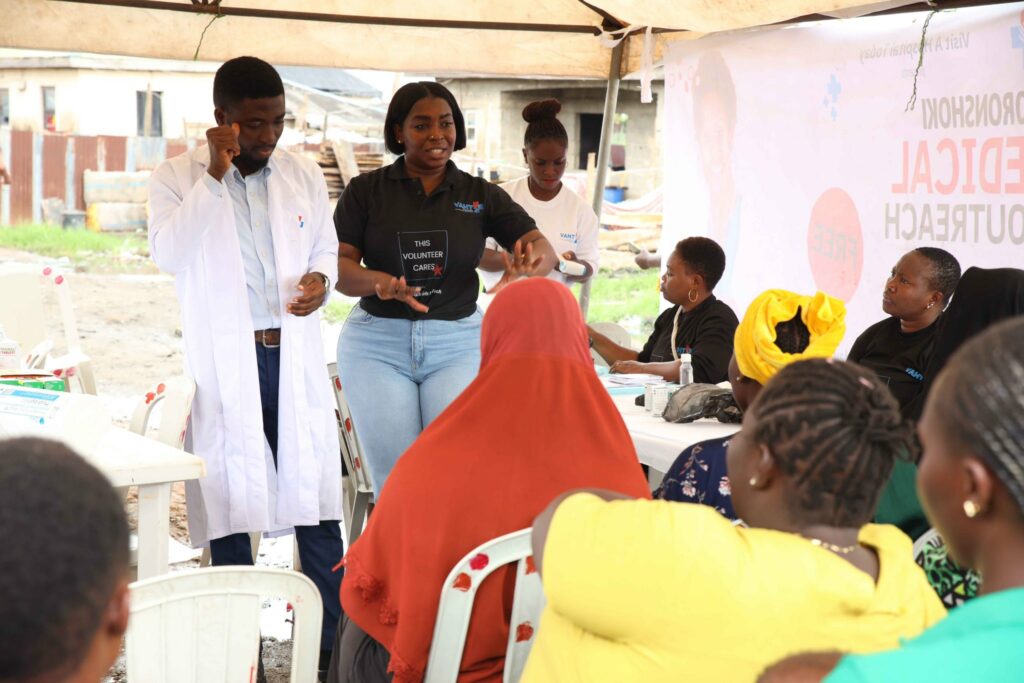
The charity paid hospital bills and provided support beyond money. Many at the hospitals were already downcast and mentally broken, so the charity had to provide emotional support for as many patients as they could.
“We sat down and cried with people. We hugged people, you know, we even checked on them after they were discharged. We even sometimes help them with accommodation. You know, it just didn’t end up in the hospital. We did a lot more of the emotional part than the actual funds. So, yes, of course, we paid their bills and we also wanted them to know that someone loved them. The world hadn’t forgotten about them,” Rene said.
“Some people’s legs were rotting away because they didn’t have money for that operation. There were people whose health was deteriorating because they didn’t have access to regular medication. So, when we came in, they were already downcast. But, you know, seeing someone come from nowhere, it’s almost like God sent an angel and I think it’s one of the most beautiful things ever. So, it was something that I was very grateful for.”
READ ALSO: VIDEO: Moment Maitama District Hospital Shut Door Against Robbery Victim
RELIGION AND RESPONSIBILITY
Rene told FIJ that her benevolence used to be fuelled by empathy but she grew to understand that charity came with a sense of responsibility.
When FIJ asked Ahmed about the responsibility she felt with managing the charity, she spoke about how she learnt devotion from her sisters-in-law, and it has helped her to stick to helping people.
“When I got married, when I met my ex-husband, I was an okay Muslim. I wasn’t praying five times daily because I just didn’t have that motivation. I’ve always known God. I’ve always been a Muslim, but I’ve just never had that extra motivation to just get up and pray or to do the regular Muslim stuff,” she said.
“But when I met my ex-husband, I already had a pretty notion of how Muslim women looked and I felt like I didn’t have role models. Muslim women that I could look at and want to emulate, a lot of them were in full hijab. They were very boring. You know, they didn’t have jobs that I admired, they didn’t have lives that I admired, so they just never motivated me to want to be a Muslim. But the moment I met my ex-husband, he took me to his sisters.
“So, him and his family, they’re very, very close. So the day I was going to meet his sisters, who were literally his whole world, I had my long nails, and my long hair and my high heels. I said, ‘Oh, please, let me remove these things. Okay. You know, you people are Muslims, like, I don’t want your sisters to you know…’ But he was like, ‘Nope, nope, nope. I want you to come exactly as you are. Come the way you are. If you don’t, they’re going to expect something else of you. So, I said okay.
“So I went with my long nails and, my short dress, and my high heels and my very long wig. And when I entered the house, I saw these women, they were looking so beautiful. They had jeans and shirts on, not tight jeans, you know, just casual and simple jeans with shirts but their heads were covered. I spent maybe about seven hours with them and, at every interval from like 2 pm, they would all get up, put on their hijab and pray; 4 pm, they’ll get up, put on their hijab and pray; 7 pm, they did the same thing.
“I thought that, ‘You people just get up and pray like this? This is dedication!’ These were very beautiful women who had great jobs; these were the women I’d been looking for. It was the motivation that I needed. Do you know that from that day till now I haven’t stopped praying five times daily? I haven’t.
“Like, I am now more dedicated. Don’t get me wrong, I was praying before but it wasn’t the way that I started. I just never missed my prayers anymore because I just felt like these people. I don’t have to be cold to be Muslim, I just need to just be a Muslim and just do good. So doing that made me more of a better Muslim. I started praying more. I started fasting.
“From there, I started learning more and more about Islam. Now, one of the things that I found out about Allah is God actually uses us to get to his children and God uses people to get to me as well. The amount of favour that I have seen in my life, a lot of people have not seen it. I just realised, and I couldn’t deny it anymore that God loved me and that I was just one of those lucky people. I knew that if I did not reciprocate the amount of love that I received through people from Allah, Allah would not be happy with me.
“And that’s one of the teachings in Islam as well. You have to give back. You have to do sadaqah, you have to help people. So it just stayed in me that, with how much blessings you get, you cannot just be living life by yourself. You can’t be living life for yourself. You have to help people, and God has to use you because God uses other people for you. So, that’s what motivated me to just stay in in the charity and stick to it.”
Since 2016, the charity has been spending millions every month to assist patients in hospitals who cannot pay their bills.
But Visit A Hospital Today is also about a lot more. This charity visits underserved communities to offer malaria tests, blood pressure checks, diabetes screenings, deworming services, free drugs, medical consultations and general counselling.
Visit A Hospital Today also renovates primary healthcare centres. The charity also works with willing partners to achieve these objectives.
CHALLENGES AND CRITICISMS
Like many non-government organisations and not-for-profit organisations, Visit A Hospital Today has challenges it must face every year.
Some of these challenges are shared with other organisations while others are peculiar to Visit A Hospital Today because it focuses on health.
“Funds,” Ahmed said first and foremost.
“Most organisations support education, they support art crafts. But when it comes to health you don’t find a lot of organisations that are willing to give support because we have the World Health Organisation. It’s also very hard for me because I am the face of the organisation and the reason why most people donate is because of me. So, I’ve tried for years to try to separate myself from the organisation so that people can trust the organisation and not me. I want them to trust me, but I wanted to be separate, so that without me being in the picture people just help the organisation.
“So, that’s been a struggle for me, and it’s still ongoing, but it’s getting better. You know, I was advised that we just needed to create a structure and just keep going and, you know, consistency. As time goes on, it would just click into place. So that’s what we are doing. So yes, my number one issue is funding.”
Rene has not received much criticism for the work she does with Visit A Hospital Today. The charity takes a lot and she spells it out that the endeavour is indeed capital intensive.
The only criticisms she could remember during this interview were the same Twitter relics about how she acted like a rich person but came online to beg people for money.
“And I’m like, it’s a charity organisation! I’m not supposed to be using my money all the time, no matter how rich,” Rene said, laughing at the mere idea of running a charity from only her purse.
INSPIRATION FOR A BETTER FUTURE
Rene praised a couple of founders who are leading their own charity organisations in and outside Nigeria.
She said that these people, peers and role models, serve as a point of reference for her. They inspire her and she reaches out to them for advice and conversation.
“Kiki James at ACE Charity. She grew up in London as well, and what she’s done with ACE Charity is just beautiful! Otto Orondaam too, he does Slum2School, and there is Hauwa Ojeifo who does mental health advocacy at She Writes Woman Mental Health Initiative. Those three people inspire me. I go to them and disturb them for advice and questions. Every single time I feel like I’m failing, I look at them and I am pumped all over again.
“I see a future where health is taken more seriously, I see a Nigeria that is more informed; a Nigeria that is more health conscious, and a Nigeria that has working hospitals.
“We don’t want to continue paying bills, we just want to inform and support people in communities. That’s the end game for us. That’s what I actually want. I want to make sure that different communities benefit from our health teachings, from our tests, from the checkups and medications. As for hospital bills, I hope that we get to the point where everyone can afford it.
“If people can’t afford it then it’s because it’s a terminal disease. You know, same as everywhere else in the world. Basic health care. I want everyone to be able to afford it but till then, yes, we will do our best to keep paying the bills.”
Subscribe
Be the first to receive special investigative reports and features in your inbox.


